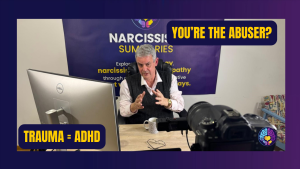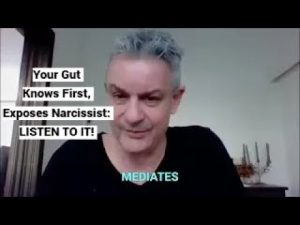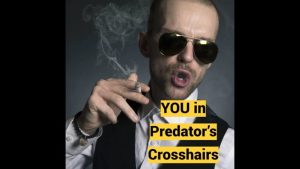- 1.1 1. Historical Role of Elites and Politicians
- 1.2 2. Rise of the Masses and Middle Class
- 1.3 3. Political Systems and Democracy
- 1.4 4. Mass Movements and 20th Century Political Ideologies
- 1.5 5. The Role and Betrayal by Intellectuals
- 1.6 6. Effect of Technology on Power Dynamics
- 1.7 7. The Pandemic’s Impact
- 1.8 8. Geopolitical Shifts
- 1.9 9. Advice to the Masses
- 1.10 10. Summary of Elite Strategies to Maintain Power
- 1.11 11. Final Reflections
Watch This to Make Sense of the World
1. Historical Role of Elites and Politicians
- For over 10,000 years, elites controlled societies by using politicians as their agents to manage bureaucracies and institutions, securing stability to increase wealth across generations. The identity of elites and their composition changed over time but their role remained consistent [00:00 – 09:30].
- The elites maintained power via nepotism, patronage, and control over law and institutions to favor their interests [04:30 – 08:00].
2. Rise of the Masses and Middle Class
- The invention of the printing press democratized knowledge, undermining elite control and leading to literacy growth, population increases, and scientific progress. This created a middle class as a buffer layer between elites and masses [09:30 – 15:30].
- The middle class aspired to elite status but primarily acted as intermediaries, betraying the masses by supporting elite interests [15:00 – 20:00].
- Masses historically hated elites and often attempted revolts, but viewed the middle class more favorably as an attainable aspiration [16:30 – 20:30].
3. Political Systems and Democracy
- Founding Fathers of the USA feared mass democracy, leading to systems like the electoral college to constrain mass power. Democracy has often resulted in tyranny (e.g., Hitler and Trump) due to masses gravitating towards strong leaders [21:00 – 27:00].
- The elites introduced liberal democracy and nationalism as tools to control masses, which unexpectedly empowered masses more than elites anticipated [47:00 – 53:00].
- The “American Dream” and the promise of social mobility functioned as illusions to pacify and control the masses [14:00 – 18:00].
4. Mass Movements and 20th Century Political Ideologies
- Mass movements such as socialism, communism, fascism, and Nazism emerged from working-class discontent, but ultimately failed as masses lacked governing skills [27:30 – 31:30].
- Mass ideologies became secular religions used to mobilize masses but often replaced old elites with new elites once successful [31:30 – 36:30].
- Mass movements resulted in violent revolutions, mass killings, and attempts to dislodge elites but ultimately reinforced elite power through new forms [32:00 – 37:00].
5. The Role and Betrayal by Intellectuals
- Most intellectuals from the middle class act to preserve elite systems rather than subvert them, creating captivating ideologies for the masses [39:00 – 41:00].
- Philosophical systems and religions serve as tools for mass control through mechanisms like magical thinking, narcissism, and withdrawal from reality [41:00 – 45:00].
6. Effect of Technology on Power Dynamics
- The printing press initiated the first democratization of knowledge; modern technologies (computing, social media) further disintermediated elites by removing middle-class gatekeepers [54:00 – 58:00].
- Technology enabled populist movements and grassroots organization, disrupting elite control like never before [58:00 – 01:02:00].
7. The Pandemic’s Impact
- The COVID-19 pandemic accelerated wealth transfer from poor to rich and exposed elite control over rights and freedoms, showing them as revocable privileges rather than inherent rights [01:02:00 – 01:08:30].
- Pandemic reinforced elite power, highlighting the dominance of multinational corporations, financial and technology sectors [01:08:00 – 01:11:30].
8. Geopolitical Shifts
- Decline of U.S. power and resurgence of Eurasian powers like China and Russia are ongoing; historical powers like China reassert dominance after centuries of Western aberration [01:11:30 – 01:16:00].
- Small nations are advised to remain neutral and focus on economic sectors that minimize dependence on superpowers [01:16:00 – 01:18:30].
9. Advice to the Masses
- Individuals are encouraged to “opt out” of the rat race, consumerism, and political manipulation as a form of resistance and protection from elite control [01:18:30 – 01:24:30].
- The speaker promotes passive resistance, minimizing consumption, and limiting engagement with elite-driven narratives and technologies [01:20:00 – 01:25:00].
10. Summary of Elite Strategies to Maintain Power
- Elites use three primary psychological control schools: psychotic (religion, magical thinking), narcissistic (law, nation, rights), and schizoid (media distractions, addiction) to co-opt masses [39:30 – 45:00].
- They deploy liberal democracy and nationalism as illusions of freedom while maintaining real power [47:00 – 54:00].
11. Final Reflections
- The speaker views democracy and nationalism as shams invented by elites to pacify and manage masses [47:00 – 53:30].
- A new wave of mass political empowerment is rising powered by technology but will be met with elite resistance [58:00 – 01:01:30].
- The speaker offers to engage with viewers for further discussion and exploration of these themes [01:25:00 – End].
Note: Timestamps are approximate minute:second marks from the transcript’s beginning.






